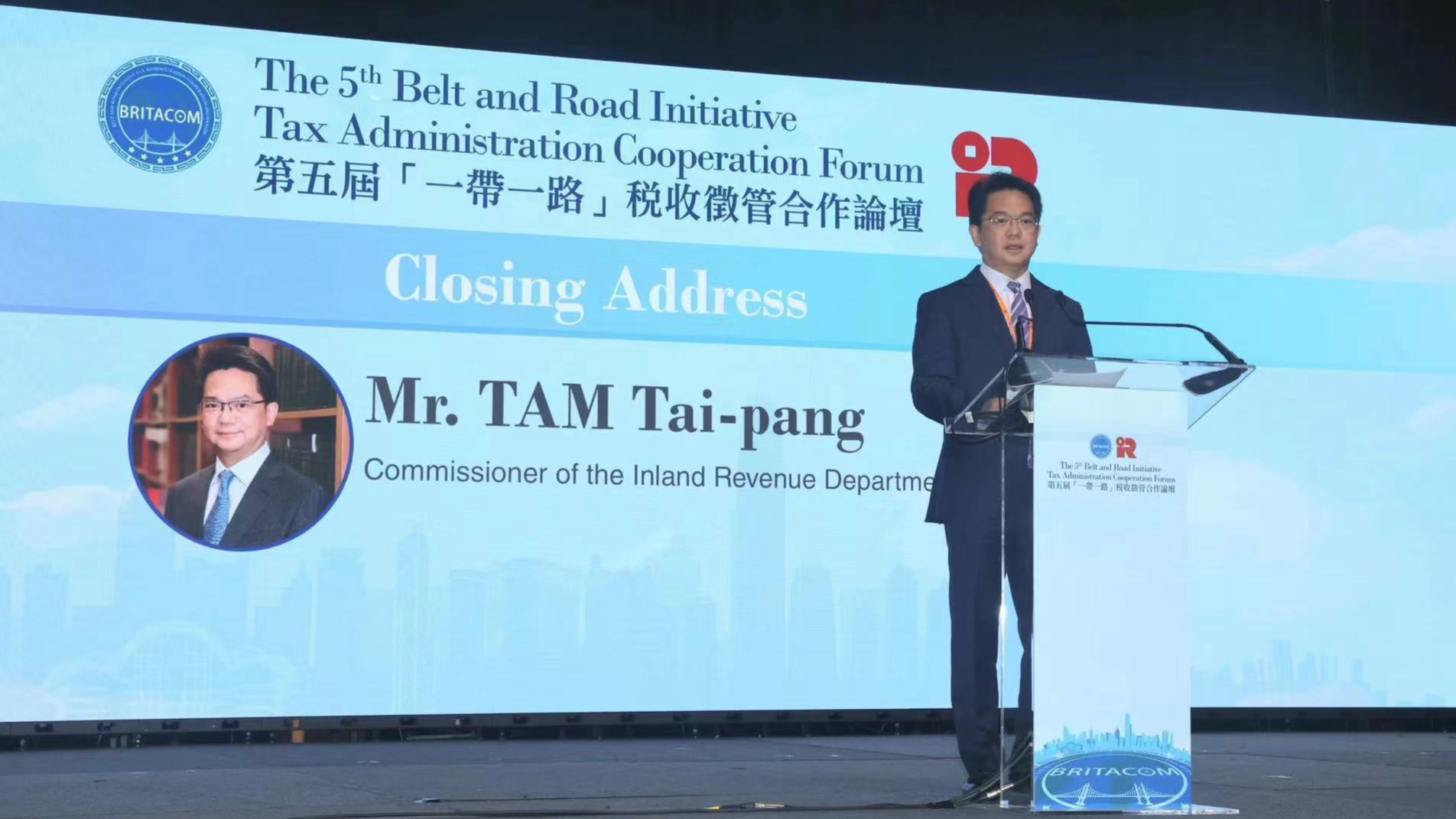
Efforts by Hong Kong’s tax department to push forward with digitalization will further improve tax administration and make life easier for businesses and individuals, enhancing the city’s appeal to attract enterprises and talents, said commissioner of Hong Kong’s Inland Revenue Department (IRD) Tam Tai-pang.
To further enhance transparency and accessibility in tax administration, the IRD will launch three portals next year, aimed at businesses, individuals, and organizations managing tax payments for clients, enabling them to handle tax matters with more electronic services, Tam said in an interview with China Daily.
The move comes as Hong Kong steps up its drive to improve the tax system in a bid to create a more favorable environment for global businesses and talents to settle in the city.
READ MORE: HKSAR govt moves to resume hotel accommodation tax
Digitalization will enable the tax authority to make better use of existing resources, and provide more efficient assessments. Moreover, it will allow businesses to handle tax matters anytime and anywhere without waiting in line to submit tax returns in person, so as to free up human resources for other tasks, Benjamin Chan Sze-wai, deputy commissioner of the IRD, said in September.
Back in 2018, the IRD initiated a study that concluded the department should improve its information technology infrastructure to allow businesses to file tax returns online. The e-filing project is being implemented in two phases, initially establishing a legal framework and IT infrastructure, offering businesses the option to file online. This phase was completed in April 2023.
The department is currently at work on the second phase, which aims to make e-filing tax returns mandatory. From the 2025-26 assessment year, large corporations will be required to file their tax returns online, with plans to gradually extend this requirement to smaller businesses in future.
“However, digitalization is full of challenges both in technology and human factors,” Tam said. Building a digitalized tax structure is not easy for tax authorities as it involves lots of resources, strategies and planning. Meanwhile, taxpayers who are accustomed to using paper-based systems have to adopt new technologies, he added.
Tam said Hong Kong’s tax policy remains competitive, noting that its rates are generally lower than in similar financial hubs, even as some of them are pursuing tax cuts. The highest personal income tax in Singapore is 24 percent, and the United States has a maximum rate of 37 percent.
In addition to tax policies, Tam said he believes Hong Kong’s “efficient, transparent, and fair tax administration” is also a significant advantage. He said all operations and procedures of his department are open to the public, allowing taxpayers to access information about how their taxes are administrated.
Taken together, these factors provide a favorable tax environment for professionals and businesses looking to develop and operate in Hong Kong, the commissioner noted.
From the tax assessment year of 2024-25, the IRD will implement the two-tiered standard rates in calculating the provisional salaries tax. The first HK$5 million ($640,000) of income will continue to be taxed at the current rate of 15 percent, while earnings above that threshold will be subject to a 16-percent rate.
Tam said one of the objectives of this new policy is to increase tax revenue based on the principle of “pay more if you can”, as “those people with higher income should be able to pay a higher rate of tax”.
READ MORE: Hong Kong needs a strategy to restore fiscal sustainability
A Hong Kong resident earning HK$10 million a year, for instance, would see tax rise slightly from HK$1.5 million to about HK$1.55 million under the new system.
In 2023-24, the IRD collected HK$342 billion, with salary tax contributing HK$79.9 billion, nearly 25 percent of the total revenue. The Hong Kong Special Administrative Region government estimates that implementing this two-tier system will bring in an additional HK$905 million annually.
“I do not expect that this two-tier standard rate will have any negative impact in the government’s efforts to attract talent to Hong Kong,” Tam noted, highlighting that it will affect around 11,700 taxpayers, or 0.6 percent of the overall taxpayer base.
Contact the writer at irisli@chinadailyhk.com


